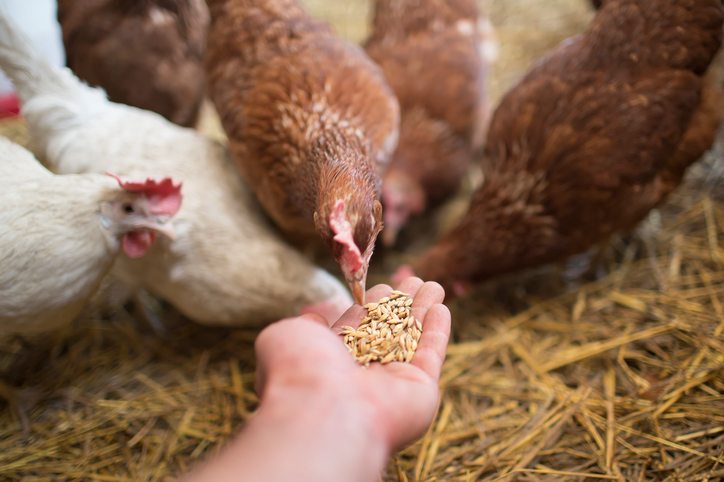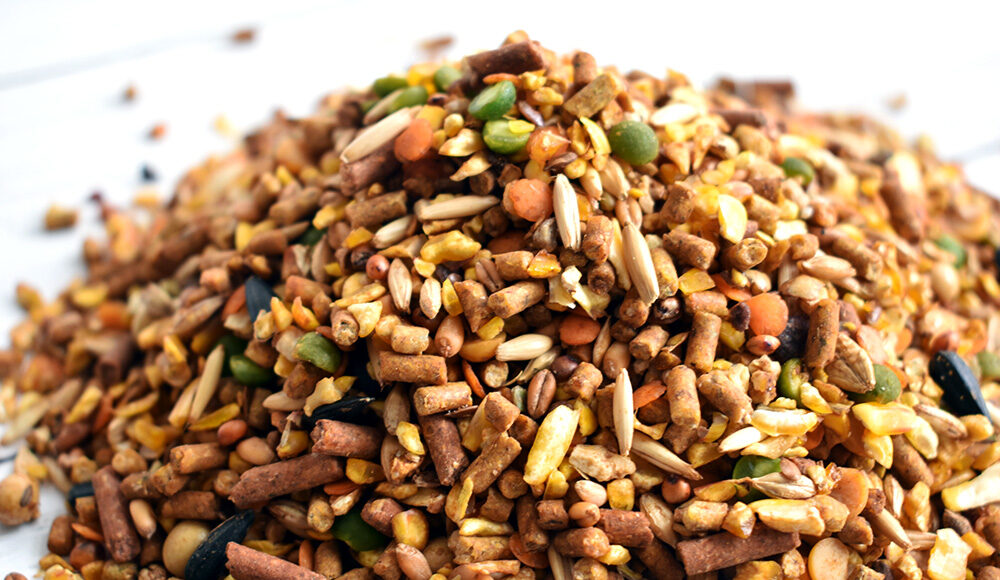Are you a poultry enthusiast looking to make your own chicken feed for broilers? You have come to the right place! This comprehensive guide will provide you with all the insights you need to ensure your broilers receive the best nutrition possible. In this article, we will explore the essential elements of chicken feed, discuss the benefits of making your own feed, and present a step-by-step guide on creating the perfect mix.

Why Make Your Own Chicken Feed for Broilers?
Making your own chicken feed for broilers comes with numerous benefits. Firstly, it allows you to control the quality and composition of the feed, ensuring that your broilers get all the essential nutrients they need for healthy growth. Additionally, it can be more cost-effective and sustainable in the long run, especially if you have access to the raw ingredients.
Quality Control and Nutrition
When you make your own feed, you can ensure the ingredients are fresh and free from contaminants. This is crucial for maintaining the health of your broilers and preventing disease. Moreover, you can tailor the feed to meet the specific nutritional needs of your birds, promoting better growth rates and overall health.
Cost-Effectiveness
Buying commercial feed can be expensive, especially if you are raising a large number of broilers. By making your own feed, you can potentially reduce costs by sourcing ingredients locally or growing some of them yourself. Over time, these savings can add up, making it a worthwhile investment.

Essential Nutrients for Broiler Chicken Feed
Broiler chickens have specific nutritional requirements to support their rapid growth. Here are the key nutrients that should be included in their feed:
Proteins
Proteins are vital for the growth and development of broilers. They provide the necessary amino acids that help build muscle and tissue. Some common protein sources for chicken feed include soybean meal, fish meal, and meat and bone meal.
Carbohydrates
Carbohydrates provide energy for broilers, helping them maintain their metabolic functions and stay active. Common carbohydrate sources include corn, wheat, and barley.
Fats
Fats are a concentrated energy source and are also essential for the absorption of fat-soluble vitamins. Good fat sources include vegetable oils, fish oil, and animal fat.
Vitamins and Minerals
Vitamins and minerals are essential for various bodily functions, including bone development, immune response, and overall health. Make sure to include a balanced mix of these micronutrients in your feed.

Step-by-Step Guide to Making Chicken Feed for Broilers
Now that we have covered the basics, let’s dive into the step-by-step process of making chicken feed for broilers:
1. Gather Ingredients
Start by gathering all the necessary ingredients. You will need protein sources, carbohydrate sources, fat sources, and a vitamin-mineral premix. Here’s a basic recipe to get you started:
- 30% Corn
- 20% Soybean Meal
- 15% Fish Meal
- 10% Wheat
- 10% Barley
- 5% Vegetable Oil
- 5% Vitamin-Mineral Premix
2. Mix Thoroughly
Once you have gathered all the ingredients, it’s time to mix them thoroughly. Use a large container or feed mixer to ensure that all the components are evenly distributed.
3. Store Properly
Proper storage is crucial to maintaining the quality and freshness of your homemade chicken feed. Store the feed in a cool, dry place, away from direct sunlight and moisture.
4. Feed Your Broilers
Now that your feed is ready, you can start feeding it to your broilers. Monitor their growth and health, and make any necessary adjustments to the feed composition as needed.

Common Mistakes to Avoid
When making your own chicken feed, it’s important to avoid some common mistakes that can negatively impact your broilers’ health:
Using Low-Quality Ingredients
Always use high-quality ingredients to ensure the nutritional value of the feed. Avoid using ingredients that are moldy, old, or contaminated.
Incorrect Proportions
Make sure to follow the recommended proportions for each ingredient. Using too much or too little of a particular component can lead to nutritional imbalances.
Inadequate Mixing
Thorough mixing is essential to ensure that all the nutrients are evenly distributed throughout the feed. Inadequate mixing can result in some broilers receiving more nutrients than others.
Understanding the Nutritional Needs of Broilers
To create the best feed for your broilers, you need to understand their specific nutritional needs. Broilers require a high-protein diet with adequate energy, vitamins, and minerals to support their rapid growth and development.
Protein
Protein is the most critical nutrient for broilers. It supports muscle growth and helps the birds reach their market weight quickly. Ensure that your feed contains sufficient protein from sources like soybean meal, fish meal, and meat and bone meal.
Energy
Broilers need a lot of energy to sustain their rapid growth rate. Provide them with high-energy feed ingredients such as corn, wheat, and barley.
Vitamins and Minerals
Vitamins and minerals play essential roles in various bodily functions, including bone development, immune response, and overall health. Make sure your feed contains a balanced mix of micronutrients to meet these needs.
DIY Chicken Feed Recipes
Here are a couple of DIY chicken feed recipes to get you started:
Basic Starter Feed
- 40% Corn
- 20% Soybean Meal
- 10% Fish Meal
- 10% Wheat
- 10% Barley
- 5% Vegetable Oil
- 5% Vitamin-Mineral Premix
Growth Feed
- 35% Corn
- 25% Soybean Meal
- 15% Meat and Bone Meal
- 10% Wheat
- 10% Barley
- 5% Fish Oil
FAQs
What Ingredients Are Essential for Broiler Chicken Feed?
Essential ingredients include proteins (e.g., soybean meal, fish meal), carbohydrates (e.g., corn, wheat), fats (e.g., vegetable oil, fish oil), and vitamins and minerals.
How Often Should I Feed My Broilers?
You should feed your broilers twice a day, ensuring they have constant access to fresh feed and clean water.
Can I Use Kitchen Scraps in My Chicken Feed?
While some kitchen scraps can be used, it’s essential to ensure they are safe and free from contaminants. Avoid using moldy or spoiled food.
As an Amazon Associate, I earn from qualifying purchases.
For more insights on chicken breeds, visit chicken breed sizes or check out our article on jumbo egg layers.
For additional information on poultry care, explore this external resource on Poultry Care 101.









